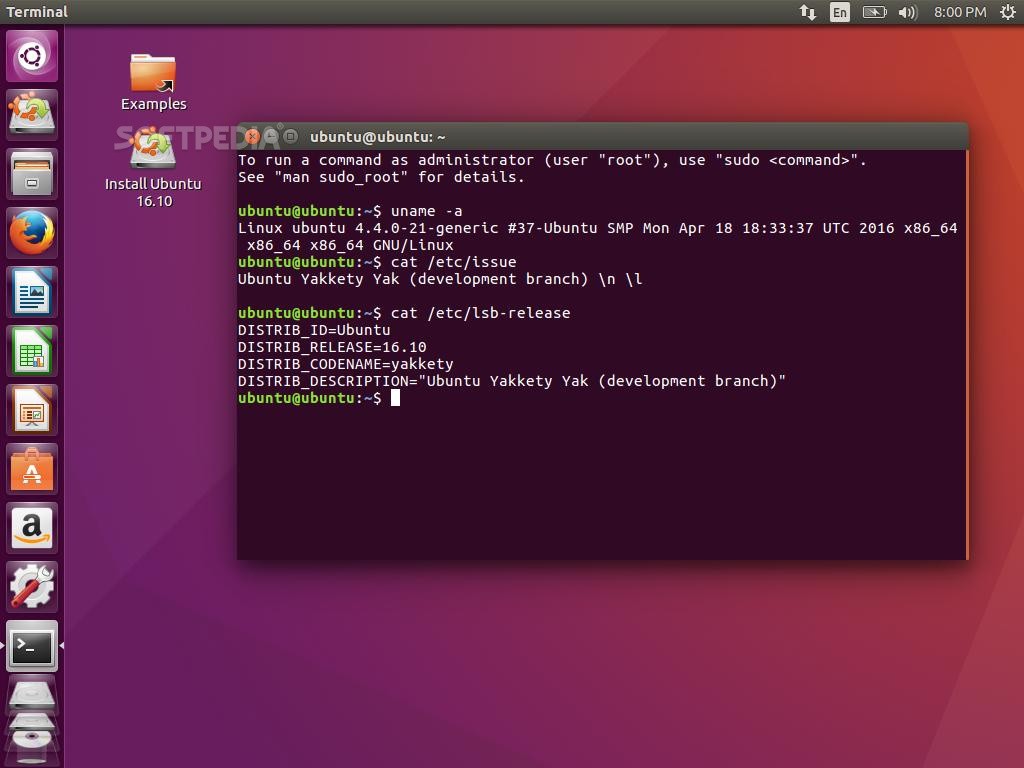Make Ubuntu 14 Iso Download
Aug 20, 2014 - Visit the URL below and download either the i386 or amd64 mini.iso. Burn the.iso to CD or dd it to a. In this tutorial we will be installing the x86_64 DVD ISO image on a virtual. The following steps will guide you through a basic installation of Ubuntu Linux Server 14.04. Use the keyboard Arrow keys to make your selection and press Enter. ISO Image Required. Step1:- First. Step3:- Download ISO Image Ubuntu Desktop 14.04 LTS. Did you make this project? Share it with us! UNetbootin allows you to create bootable Live USB drives for Ubuntu, Fedora, and other Linux distributions without burning a CD. Download the ISO straight from the website. You will first have to join the corresponding Ubuntu Translators group for the language you intend to translate. Download KodiBuntu 14.0rc (32-bit). Linux distribution based on Media Center. Kodi (previously XBMC) is one of the most versatile multimedia centers available today. Create bootable Live USB drives for Ubuntu, Fedora, and other Linux distributions. Lubuntu Developers. Ubuntu becomes lighter and simpler thanks to LXDE. For other versions of Ubuntu Desktop including torrents, the network installer, a list of local mirrors, and past releases see our alternative downloads. Ubuntu 18.10 The latest version of the Ubuntu operating system for desktop PCs and laptops, Ubuntu 18.10 comes with nine months, until July 2019, of security and maintenance updates.
From a reliable source, no torrent sites. I want version 14.04.1 because 14.04.2 (trash version) doesn't work. Something is always not functioning. I don't know what they did to mess it up, but I have tested 14.04.1 and V2 on 3 computers and all of them work perfect with V1 unlike V2. Lets see if I can get some help for the first time in 2 years of using Linux asking a simple question. Instead of the super hard ones I never got help with. I googled it and the only site I found had mirrors with offline servers.
1 Answer

Old releases of Ubuntu get archived to the old-releases server. This often includes the older point releases of currently supported Ubuntu releases. You can get desktop images for 14.04.1 by clicking the link to that version, which brings you to the trusty folder.
Assuming you want one of the usual desktop ISO images (and not, for example, a server ISO image), you have 32-bit and 64-bit options, as with other releases:
- Ubuntu 14.04.1, 32-bit:
ubuntu-14.04.1-desktop-i386.iso - Ubuntu 14.04.1, 64-bit:
ubuntu-14.04.1-desktop-amd64.iso
If you're looking for the image built specially for compatibility with 64-bit Macs, you'll notice that hasn't been archived there (at least as of this writing). Instead it is on the cdimages server, which hosts many of the lesser-used ISO images:

- Ubuntu 14.04.1, for 64-bit Macs:
ubuntu-14.04.1-desktop-amd64+mac.iso
Since those are the official primary download locations for these images, they should be expected to remain available (and I have tested the three links posted here--they all work).
The md5 hashes for Ubuntu 14.04.1, including all the above-linked images, remain available on the 14.04 section of the UbuntuHashes page. How to bypass megasync download limit.
If the problems you had with the 14.04.2 ISO image were with the installation, using the old 14.04.1 image is usually a good solution. However, if they happened from updating your 14.04 system, then installing from 14.04.1 and not installing any updates is at best only a short-term solution. This is because some of the updates users receive are provided to patch security vulnerabilities that have been discovered.
Therefore, you may consider proceeding in one of these ways:
- Try an older kernel. You can probably do this with your currently installed system. This fixes--or, in any case, works around--many hardware problems that start after an update. By default Ubuntu keeps some older kernels, when a kernel update is installed. Hold Shift while booting to show the GRUB menu and (if needed) select Advanced options. Then you can select from the bootable kernels that are installed and try out older ones.
- After installing, allow security updates and not others, but do update it. (You can select 'Important security updates' in the Updates tab in Software Sources, but uncheck 'Recommended,' 'Pre-released,' and 'Unsupported' updates.) See if that prevents the problem. It might not, though.
- Try to figure out specifically which updates are causing the problem and disable only them. Some troubleshooting would be required for this.
- Try to find solutions to the problems you've had. You can post a new question about this (or multiple new questions about different problems, if the problems seem separate from one another).